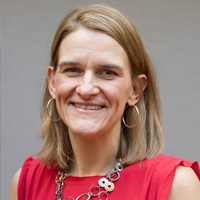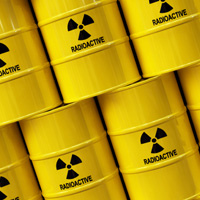News about nuclear disarmament, nonproliferation, and security of nuclear materials is complicated and sometimes involves fast-paced developments in international diplomacy, the military, and differences of opinion among policymakers and policy experts alike. As such, nuclear issues can be difficult for journalists to cover.
Yet it’s important that the public fully understand the risks posed by nuclear weapons and materials through substantive and informed reporting. To address this concern, MacArthur provided a grant to the Nieman Foundation for Journalism at Harvard University to develop a three-day workshop designed to help journalists understand technical aspects of nuclear issues as well as how nuclear policy fits into American foreign policy and international security.
The March workshop exposed journalists to leading scholarship on the issues and gave them practical instruction for handling nuclear issues in their writing. Nieman Foundation partnered with another MacArthur grantee on Harvard’s campus, the Belfer Center for Science and International Affairs, to develop content for the workshop.
A total of 18 journalists, representing a diverse range of career-levels and reporting beats, came from digital outlets like Axios, the Daily Beast, and Politico, as well as more traditional outlets like The New York Times and Fox News. The workshop began with a keynote conversation between The New York Times’ David Sanger and Gary Samore, former White House Coordinator for Arms Control and Weapons of Mass Destruction and now Executive Director for Research at the Belfer Center, about cybersecurity of our nuclear arsenal, new Russian weapons technology, North Korea’s nuclear program, and the Iran nuclear deal.
David Sanger and Gary Samore, keynote speakers from the Nieman Foundation.
Over the next two days, a diverse range of experts on political and technical aspects of nuclear policy briefed the journalists. Topics ranged from nuclear and radiological terrorism to the North Korean crisis and strategic stability with Russia. All the speaker sessions and Q&A are available on video for other journalists who may need primers on these subjects.
The workshop included a field trip to the Massachusetts Emergency Management Association, located in a Cold War-era concrete bunker outside Boston where emergencies from coastal flooding to terrorist attacks are managed. Staff briefed the participating journalists on how they prepare and plan for the possibility of a nuclear emergency, whether that be a nuclear terrorist attack or an accident at a nuclear energy facility.
Finally, a number of resources including backgrounders, fact sheets, recent opinion pieces, interactive materials, and more–about a wide-range of nuclear issues–were gathered and remain available online for any journalist who may need them in their reporting. At MacArthur, we’re also happy to serve as a resource to journalists. We support a number of civil society organizations that work on various nuclear issues and can point reporters to the appropriate experts and resources as needed.




